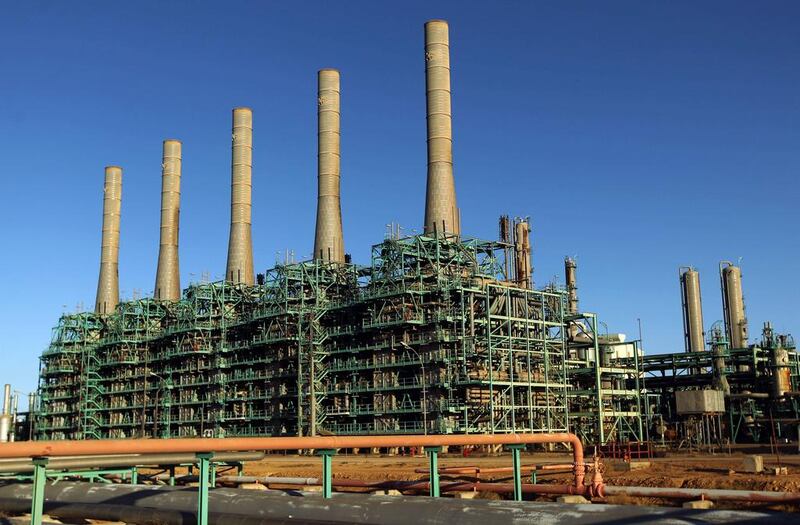The Libyan National Army on Tuesday carried out fresh air strikes against the Benghazi militias who captured two key Libyan oil ports days earlier, vowing to launch a counter-offensive against them.
It came as Libya’s elected parliament voted to withdraw its support for the United Nations peace deal and UN-backed Government of National Accord, denting hopes for an end to Libya’s civil war.
The central ports of Sidra, Libya’s biggest oil terminal, and Ras Lanuf, on Friday fell into the hands of the Benghazi Defence Brigades, a militia that was pushed out of the city of the same name last year by the army.
The army said its warplanes pounded militia positions around Ras Lanuf for a fifth day running, as well as the town of Nawfiliya, 75 kilometres to the west.
LNA spokesman Ahmed Al Mismari said the latest strikes had hit positions of the Benghazi Defence Brigades at Ras Lanuf.
“It forced them [the Benghazi Defence Brigades] to mobilise ambulances to carry their dead and wounded to the west,” he said, without elaborating on casualty figures.
Meanwhile LNA units have massed to the east at Brega on the western side of the so-called Oil Crescent, home to 80 per cent of Libya’s oil production, in preparation for a counter offensive.
“There is a very large air and ground mobilisation of forces to drive back the terrorist gangs in the Oil Crescent,” said Colonel Ahmed Mismari, spokesman for the army, which is controlled by Libya’s elected parliament, the House of Representatives.
He also urged citizens to stay off the 180-km coastal road between the ports and Sirte amid speculation that militia reinforcements from the coastal city of Misurata will drive along it to bolster Benghazi militia units at the ports.
On Tuesday, Abdullah Ablaihig, spokesman for the Tobruk-based House of Representatives, said the parliament voted to annul its previous acceptance of a presidential council and the UN-backed government currently led by prime minister Fayez Al Serraj in Tripoli. They also called on all Libyan parties to condemn militias that occupied the two key terminals in what it described as “terrorist attacks” saying it was suspending its participation in peace talks until they did so.
Speaking from Misurata on Monday, Benghazi Defence Brigades commander Colonel Mustafa Al Sharksi announced plans to push further east from the ports to capture Benghazi, saying: “Our main goal is to return [to] our city [Benghazi].”
Col Al Sharksi said he supported the UN-backed Government of National Accord (GNA) in Tripoli, a rival administration to the House of Representatives. The two ports, along with oil terminals at Brega and Zueitina were captured in September by the army, which is commanded by Field Marshall Khalifa Haftar.
Meanwhile France, Britain and the United States called for calm.
“We recall the urgent need for a unified national military force under civilian command in order to preserve the security and prosperity of all Libyans,” they said in a joint statement.
An official at Libya’s state oil holding company, the National Oil Corporation, on Monday announced a cut in production from 700,000 barrels per day to 650,000 bpd because of the fighting, with tankers due to load at the ports being diverted elsewhere.
The fighting has imperilled ambitious expansion production plans by the company, which said last month it was hoping production would reach 1.25 million bpd by the end of 2017 after concluding a provisional production deal with Russia’s Rosneft oil giant.
Casualty figures from the last five days of fighting remain unclear, with the LNA announcing 18 dead and 12 wounded, and the Benghazi Defence Brigades so far giving no tolls.
* with additional reporting from Associated Press
foreign.desk@thenational.ae





